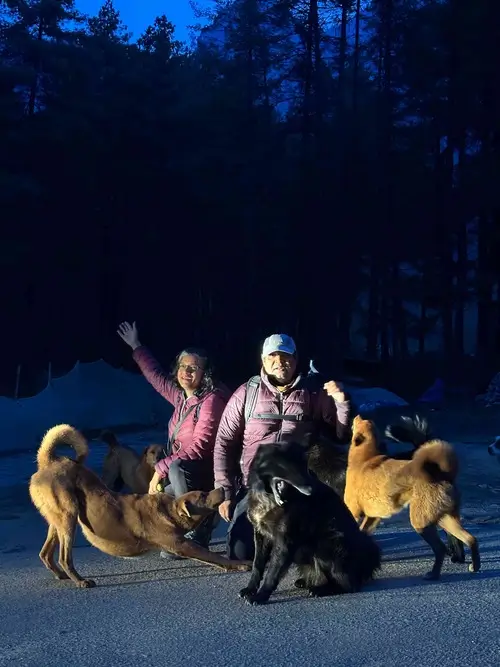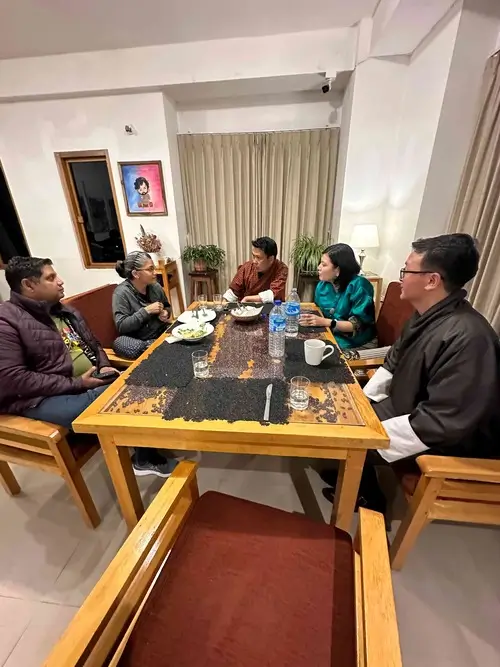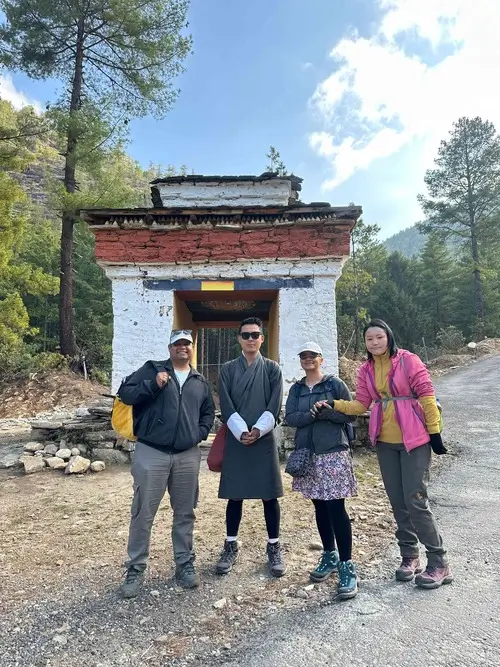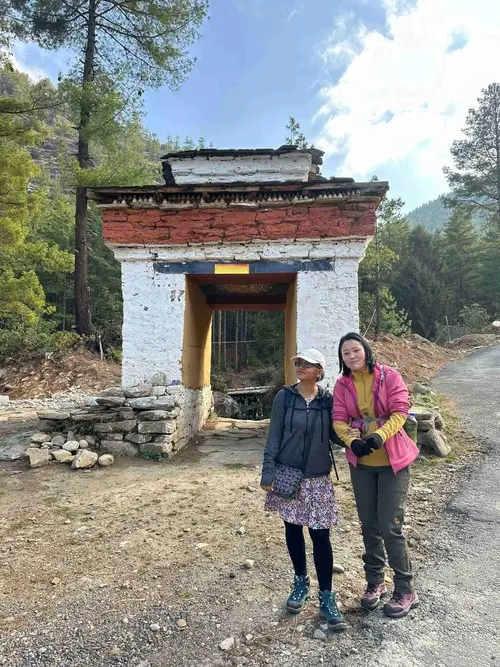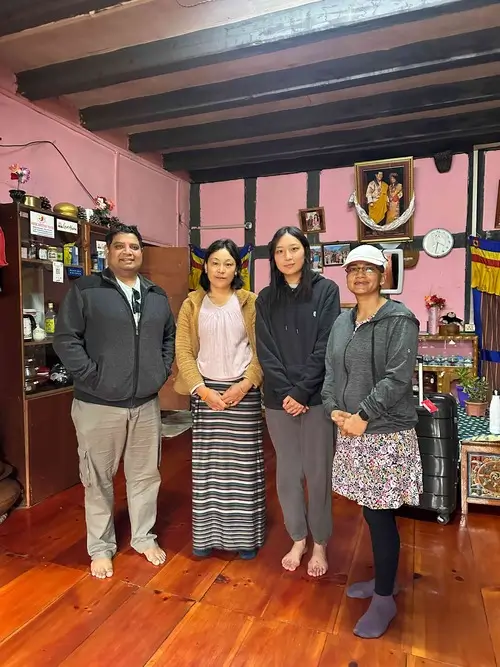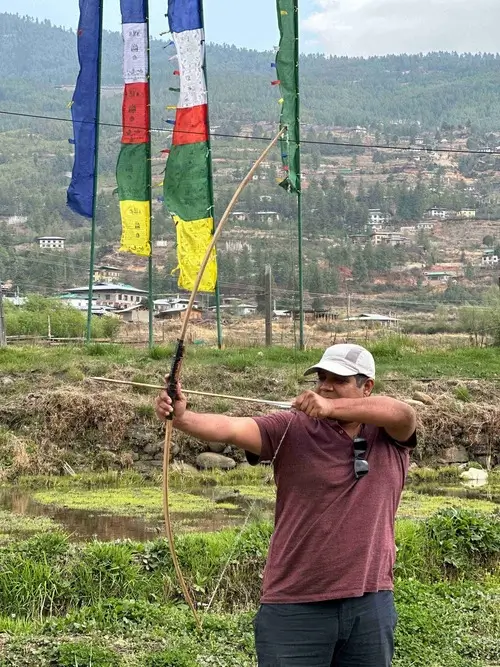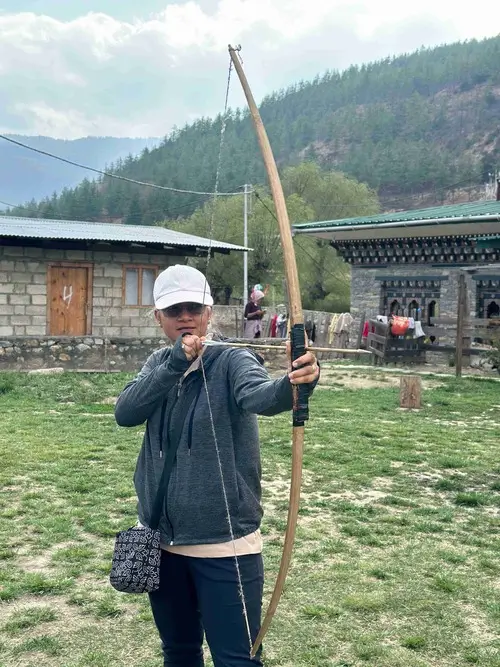Frequently Asked Questions about Bhutan Tour

Bhutan, nestled in the Eastern Himalayas, is a landlocked kingdom bordered by Tibet to the north and India to the south, east, and west. Renowned for its stunning scenery and vibrant culture, this enchanting country offers visitors a unique blend of ancient traditions and breathtaking landscapes. From the majestic landmarks to pristine forests and lively festivals, Bhutan is a hidden gem waiting to be discovered by intrepid travelers seeking adventure, tranquility, and cultural immersion.
Bhutan is a year-round destination. However, the best time is during spring (March-May) and autumn (September – November) seasons. Most of the festivals in Bhutan are celebrated during those seasons when the weather is warmer and skies clear.
Bhutan experiences four distinct seasons: summer, autumn, winter, and spring. Due to its diverse topography, the climate varies greatly across the country.
In the south, a humid subtropical climate prevails year-round with temperatures ranging from 15°C to 30°C. Central Bhutan enjoys temperate forests and experiences warm summers and cool, dry winters. The northern regions are significantly colder in winter, with year-round snow-capped peaks and cool summers.
During summer, the Indian monsoon affects the southern regions from late June to September, supporting lush landscapes ideal for farming. Autumn, following the rainy season, features sunny days and early snowfall at higher elevations, marked by feasts and festivals.
Winter, from late November to March, brings clear skies, frost, and common snowfall above 3,000 meters, accompanied by gale-force winds known as the winter northeast monsoon. Spring, from March to mid-April, showcases blooming nature, while occasional showers mark the transition to summer, lasting until late June.
Bhutan boasts a rich linguistic diversity with 19 different languages spoken, yet the official tongue is Dzongkha. English holds significant importance in Bhutan's education system, making it widely spoken and comprehended across the nation. Additionally, a considerable portion of the Bhutanese populace is proficient in Hindi and Nepali languages.
Visitors of all nationalities, except for Indian citizens, need a visa to enter Bhutan. For most visitors, except those from Bangladesh and the Maldives, this visa must be obtained before traveling. However, nationals from Bangladesh and the Maldives can either apply for a visa beforehand or upon arrival in Bhutan.
Indian citizens can apply for a permit but must possess either an Indian passport or an Indian voter ID card. Those under 18 years old can use a passport or birth certificate for entry, accompanied by a legal guardian.
Swiss and Thai nationals with diplomatic or government-official passports can obtain a visa upon arrival at their entry point. For more details on the Bhutan Visa Application process and documents checklists, check out our step-by-step guide to applying a Bhutan Visa Online.
The cost of Bhutan Visa is a one-time free of USD 40 per person. The Visa fee is payable at the same time as your Sustainable Development Fee (SDF), as part of the process of submitting your visa application.
The Sustainable Development Fee (SDF) is a daily charge imposed by the Royal Government of Bhutan on visitors to contribute to Bhutan's Sustainable development efforts.
The SDF rate is USD 100 per night for adult visitors from all countries except India. Children aged between 6 and 12 years are required to pay USD 50 per night, while those under 6 years old are exempt from the SDF.
For Indian nationals, the SDF is Nu. 1,200 (or the equivalent in Indian rupees) per person per night. Children between 6 and 12 years old are charged Nu./INR 600 per night, while those under 6 years old are exempt from the SDF. More details about the Bhutan SDF can be found here.
Every visitor must possess comprehensive and valid travel insurance throughout their stay in Bhutan. For visitors excluding those from India, Bangladesh, and the Maldives, this insurance must be obtained before applying for a visa. The scanned copy of your Travel Insurance must be submitted during your visa application process.
Your travel insurance must include coverage either for Bhutan or internationally. If your travel insurance does not indicate geographical coverage, there is a high likelihood that your visa may be declined.
Visitors from India, Bangladesh, and the Maldives can opt to purchase domestic travel insurance upon arrival at their point of entry.
If you have filled up your application correctly along with the required documents, your Bhutan Visa application will be processed within five (5) working days.
The visa allows you to remain in Bhutan for a maximum of 90 days from the date of entry.
Yes, as long as the extension request is submitted before the original visa or permit expires, visitors can prolong their stay. The extension process can be completed through the online visa application portal using the same login credentials used for the initial visa application. Both the fees for processing the extension application and the daily Sustainable Development Fee for the extended period must be paid through the portal.
Certainly: The Department of Immigration will reimburse the Sustainable Development Fee (SDF) for canceled or shortened trips, covering the nights not spent in Bhutan. Any bank fees incurred during the refund process will be subtracted from the total amount refunded. SDF refund requests must be made online through the visa portal and will be processed after visitors depart Bhutan.
No nationality is restricted or prohibited from granting a Bhutan Visa.
Yes, you can use your credit card for online payment of your visa and SDF. However, it's highly advisable to inform your bank beforehand to ensure smooth transaction processing. Failure to notify your bank in advance may lead to online payment blocks, as some international banks implement security measures that could hinder transactions to Bhutan.
Bhutan’s National currency is called Ngultrum. It’s 1:1 with Indian Rupees. USD and INR are widely accepted in Bhutan. However, in terms of USD, we recommend bringing bigger notes since they get higher exchange rates in Bhutan.
If you are planning to bring cash to Bhutan, the maximum cash allowed in Bhutan by law is USD 10,000. (Ten Thousand US Dollars) or equivalent in any other currency.
You can change your local currency for Ngultrum upon arrival at Paro International Airport or at banks, larger hotels and authorised currency exchange businesses in Thimphu – The capital city of Bhutan. For a smoother and more convenient experience, it's advisable to allow your tour operator to manage it on your behalf.
ATMs and banks in Bhutan generally accept Visa and Mastercard. While international credit cards are commonly used in urban areas, availability may be limited in rural regions. To overcome this, visitors can utilize the goBoB digital wallet app provided by the Bank of Bhutan , compatible with local SIM cards and widely accepted nationwide. Alternatively, the MPay digital wallet app offered by the Bhutan National Bank is another option, connecting to international credit cards for widespread usage.
However, if you wish to use your cards in Bhutan, make sure you contact your Bank before coming to Bhutan. Some of the International banks usually need to give access for your cards to be used in Bhutan.
Cash in US dollars, Indian rupees, or Bhutanese ngultrum is widely accepted. It's recommended to carry some cash in any of these currencies.
The crime rate in Bhutan is notably low in comparison to numerous other countries, making it generally safe for travelers, including solo female travelers. However, it's advisable to exercise caution as a precautionary measure; safeguard your belongings and refrain from walking alone at night. Additionally, keep in mind the presence of stray dogs, although they are typically friendly.
Bhutan's natural landscape poses occasional safety risks such as flooding and landslides, particularly during the monsoon season from June to September, which may impact transportation and other related services. It's recommended to consult your tour operator for any potential disruptions.
Bhutan has a single international airport situated in Paro. Drukair and Bhutan Airlines offer flights to and from various destinations such as Bangkok, Delhi, Kolkata, Bagdogra, Bodhgaya, Dhaka, Kathmandu, Guwahati, and Singapore. Private jets or charters are permitted to fly into Bhutan with the appropriate approvals. Additionally, domestic airports are located in Yonphula (eastern Bhutan), Bumthang (central Bhutan), and Gelephu (south-central Bhutan).
Those wishing to enter Bhutan via road can enter Bhutan via any of the three border gates located at Phuentsholing, Gelephu, or Samdrup Jongkhar.
In the past, visitors were required to coordinate their travel arrangements to and within Bhutan through a licensed tour operator. However, following our reopening on September 23rd, 2022, visitors now have the flexibility to independently arrange all aspects of their trip to Bhutan. However, we recommend seeking help from expert tour operators to make the experience seamless and worthwhile.
The most important documents while travelling to Bhutan are your Passport or Identity Documents (Indian Citizens), and Visa Confirmation Letter. The actual visa will be stamped on your passport upon your arrival at the port of entry. Also, its mandatory to bring your flight tickets either in print or a soft copy for your flight in and out of Bhutan.
At present, no vaccinations are required for Bhutan. But vaccinations for Hepatitis A, Tetanus, Typhoid Fever are recommended or to be up to date. Malaria is prevalent in some areas of southern Bhutan.
Most tourist destinations in Bhutan are located below 3000 meters, so encountering altitude-related problems is unlikely unless you're trekking or camping at higher altitudes. However, it's crucial to recognize that people react differently to altitude, and altitude sickness can affect anyone, regardless of their fitness level or age. Thus, it is best to seek guidance from your tour operator or your guide to have some acclimatization exercises in Bhutan before taking any hikes or treks.
The most convenient way to travel around Bhutan is to rent a vehicle with a driver from a car rental company or tour operator, as self-driving is not permitted. If you're traveling with a tour operator, they will handle transportation logistics for you
For longer distances, domestic flights are an excellent option, with services available to and from Yonphula in the east, Bumthang in the center, and Gelephu in the south-central region.
Helicopter services are offered for special itineraries, and additional information can be obtained from the Royal Bhutan Helicopter Services page or through your tour operator.
Indian Citizens are permitted to drive their own cars into Bhutan with certain requirements & guidelines.
There is a daily fee of Nu./INR 4,500 per car, and the guests will have to pay additional charges to the guides. The car and the driver must adhere to Bhutan’s Roads Safety and Transport Authority regulations, including possessing a valid driver's license, insurance, pollution control documentation, entry permit, and being in satisfactory condition. Indian driver's licenses are acceptable for self-driving in Bhutan. The same regulations and fees also apply to motorbikes. If the vehicle is not owned by the guests, an authorization letter is required.
Yes, for all guests driving their own vehicles into Bhutan, a guide is obligatory at all times. It's strongly advised to arrange guides in advance before reaching the borders. If you need help with arranging a guide, please contact our expert team.
Having a local guide is crucial for fully experiencing Bhutan and ensuring safety, especially in unfamiliar terrain and at high altitudes. Outside of Thimphu and Paro, as well as for travelers entering Bhutan via land borders and exploring beyond border towns, a guide is compulsory.
While a Route Permit is no longer needed for domestic travel when accompanied by a certified guide. While guides may not be necessary for all activities such as dining out or shopping, we strongly recommend their presence for visiting temples, local attractions, and monuments.
Route Permits are no longer mandatory for travel within Bhutan. However, individuals on business visas or for official purposes still require a Route Permit.
Starting April 14, 2023, tourists visiting Samtse, Phuentsholing, Gelephu, and Samdrupjongkhar towns for 24 hours will be exempt from paying the Sustainable Development Fee (SDF). This waiver will be in effect for one year. However, the SDF waiver only applies to tourists who remain within the designated zones of these border towns. Travelers who venture beyond these designated zones will be subject to the SDF.
Specifically, tourists will incur the SDF if they travel beyond Gurung Basti in Samtse, and beyond Rinchending Checkpost in Phuentsholing. In Gelephu, the designated zone is at Aipoli Bridge, and in Samdrupjongkhar, it is at Pinchinna checkpost.
Every trekking activity in Bhutan necessitates the supervision of an authorized tour operator or guide. Your tour operator will manage all aspects of logistics and safety to ensure a smooth trekking experience.
Although many monuments in Bhutan are free to visit, some do have an entry fee which can be paid in cash or via the goBOB app upon arrival at the site. For a comprehensive list of monument fees, please click here for more information. Children under 18 years old will receive a 50% discount, and those aged five years and below will be exempt from fees.
Yes, a guide is required to enter monuments and Dzongs in Bhutan.
Yes, permits are required to enter National Parks in Bhutan. However, the process can be done online and the permit should be issued quickly.
While there are no strict dress codes for visitors in Bhutan, it's advisable to dress modestly, particularly when visiting religious sites. Respectful smart-casual attire covering the body from shoulders to knees is suitable and appreciated, especially when visiting places of religious significance. Additionally, it's customary to remove headgear and shoes before entering temples and Dzongs.
Bhutan provides diverse Accommodation options, ranging from luxurious five-star hotels to charming homestays nestled in traditional village environments. For a list of approved accommodations endorsed by the Department of Tourism in Bhutan, please get in touch with us.
You may only stay in accommodation or campsites approved by the Tourism Council of Bhutan. Contact Us to check if the accommodation you are eyeing for is approved by the Department of Tourism.
Most of the Department of Tourism Approved hotels in Bhutan have Wi-Fi connection, however the speed may not be reliable in some. To ensure a reliable internet connection, we recommend getting a tourist SIM Card for better connectivity and reach.
The people of Bhutan utilize a diverse range of mobile phone brands, and there are no reported functionality issues with any specific brand in the country. Therefore, regardless of the brand you use, your mobile phone will function properly in Bhutan.
SIM cards are available for purchase upon arrival at the visitor information centre in Paro International Airport, as well as at branch offices of Bhutan Telecom and Tashi Cell, or through authorized agents located in towns. If you are travelling through a good tour operator in Bhutan, your tour operator will have it arranged for you before you arrive in Bhutan.
Bhutanese cuisine encompasses a variety of dishes, including Indian, Chinese, and other continental meals that are widely enjoyed. The national dish of Bhutan is 'Ema Datshi,' consisting of spicy chilies mixed with cheese. Red and white rice are staple components of most meals, accompanied by non-vegetarian dishes such as pork, beef, chicken, and fish, which are readily available across Bhutan. Additionally, vegetarian options are offered as per your preferences.
Bottled mineral water is easily accessible throughout Bhutan, ranging from small Paan shops to luxurious 5-star hotels. We advise using tap water solely for washing and cleaning purposes, as most tap water in Bhutan is sourced directly from nature and remains untreated. It's important to refrain from drinking water from rivers.
Bottled mineral water is easily accessible throughout Bhutan, ranging from small Paan shops to luxurious 5-star hotels. We advise using tap water solely for washing and cleaning purposes, as most tap water in Bhutan is sourced directly from nature and remains untreated. It's important to refrain from drinking water from rivers.
In Bhutan, three types of electrical plugs are commonly used: the British plug (with three square pins, compatible with type G sockets), the European plug (with two round pins, compatible with type C sockets), and the Indian plug (with three thick round pins, compatible with type D sockets).
To operate a drone for recreational or commercial purposes in Bhutan, a permit is necessary and must be obtained beforehand. For further details regarding the regulations, please contact [email protected] via email or contact us.
Bhutan is a haven for photographers, and capturing photos is permitted in most places except inside temples. Bhutanese people are usually willing to be photographed, but it's courteous to ask for permission if you want to focus on a specific individual. Additionally, it's important to refrain from photographing members of the Royal Family, even if they are present at festivals or gatherings. Encounters with members of the Royal Family are frequent, and depending on the circumstances, you can politely request your guide to inquire about obtaining permission for a photo together.
Although Bhutan is not known for shopping or big brand outlets, numerous small handicraft shops offer a variety of handcrafted souvenirs such as keychains, shawls, hand-woven silk textiles, masks, paintings, cane and bamboo products, postage stamps, and more. These items are all crafted by local artisans. However, it's important to note that the buying and selling of antiques is strictly prohibited in Bhutan.
Preserving our heritage for future generations is integral to Bhutanese culture, and retaining important antiques and artifacts within the country plays a significant role in this effort. We have established laws outlining specific categories of objects, including artistic, historic, cultural, religious, social, archaeological, and technical items, which are not permitted to be taken out of the country upon departure. To ensure compliance with these regulations, individuals acquiring items will require an Export Permit for Non-Antique Artefacts. For more information on obtaining this permit and the application process, please visit [link]. Find out more about the permit and how to apply for one here.
Additionally, a comprehensive list of prohibited, restricted, or declarable items can be found here.
If your inquiry pertains to tourism, you can contact the Department of Tourism directly at +975 1712 2257 (or 2300 within Bhutan) or you can directly reach the team of Found Bhutan Tours & Treks. For emergency services, dial 110 for fire, 112 for an ambulance, or 113 for the police.
Bhutan Travel Guide
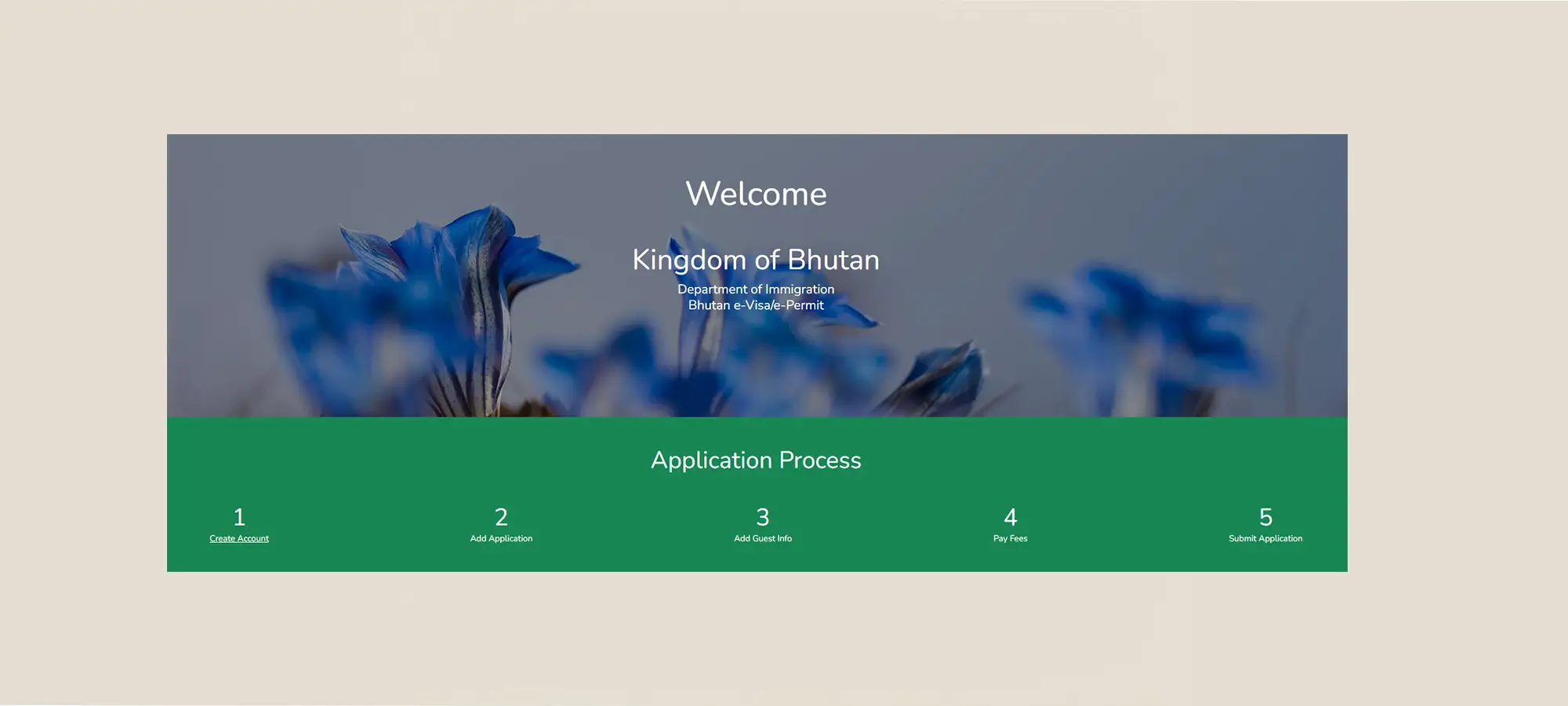
Bhutan Visa Application Guide
Continue Reading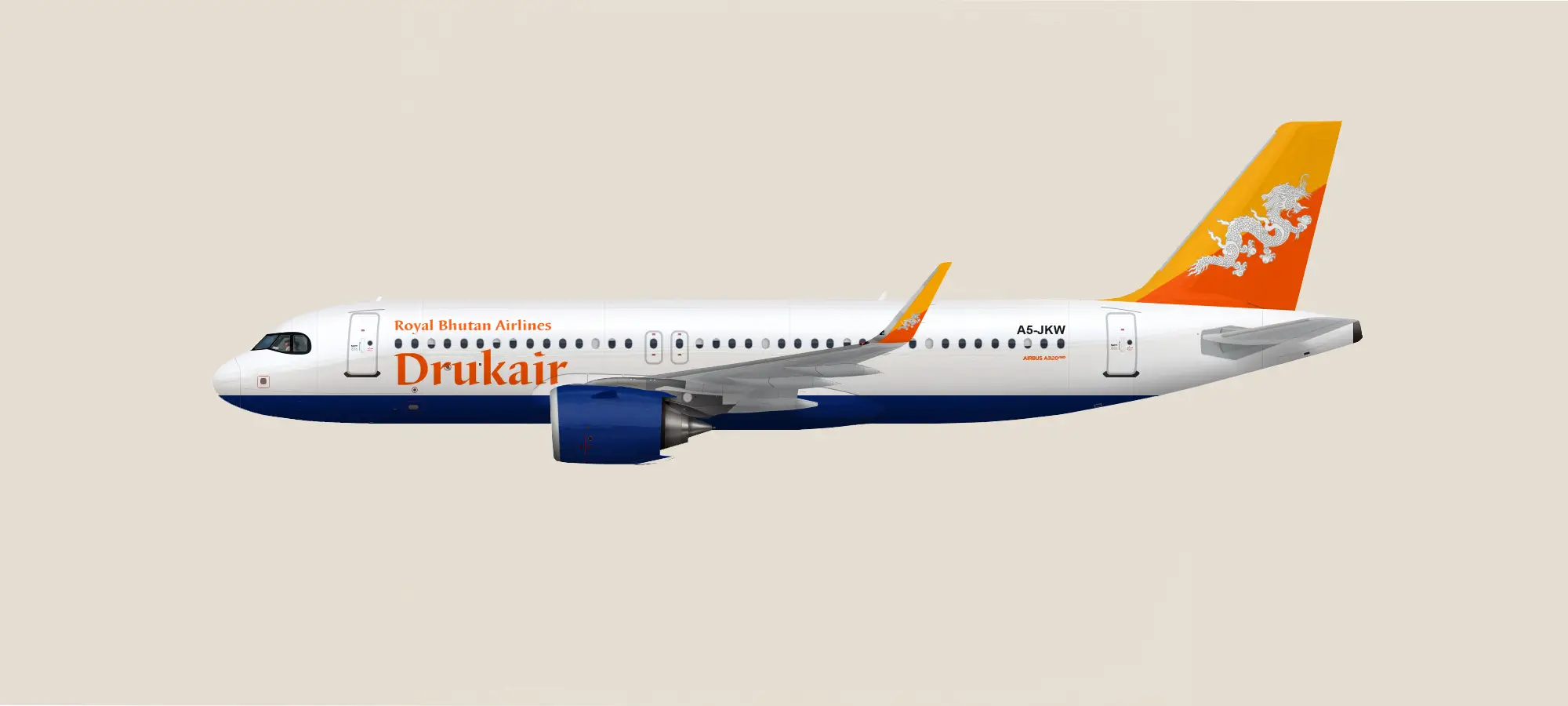
Book Your Flight Tickets to Bhutan
Continue Reading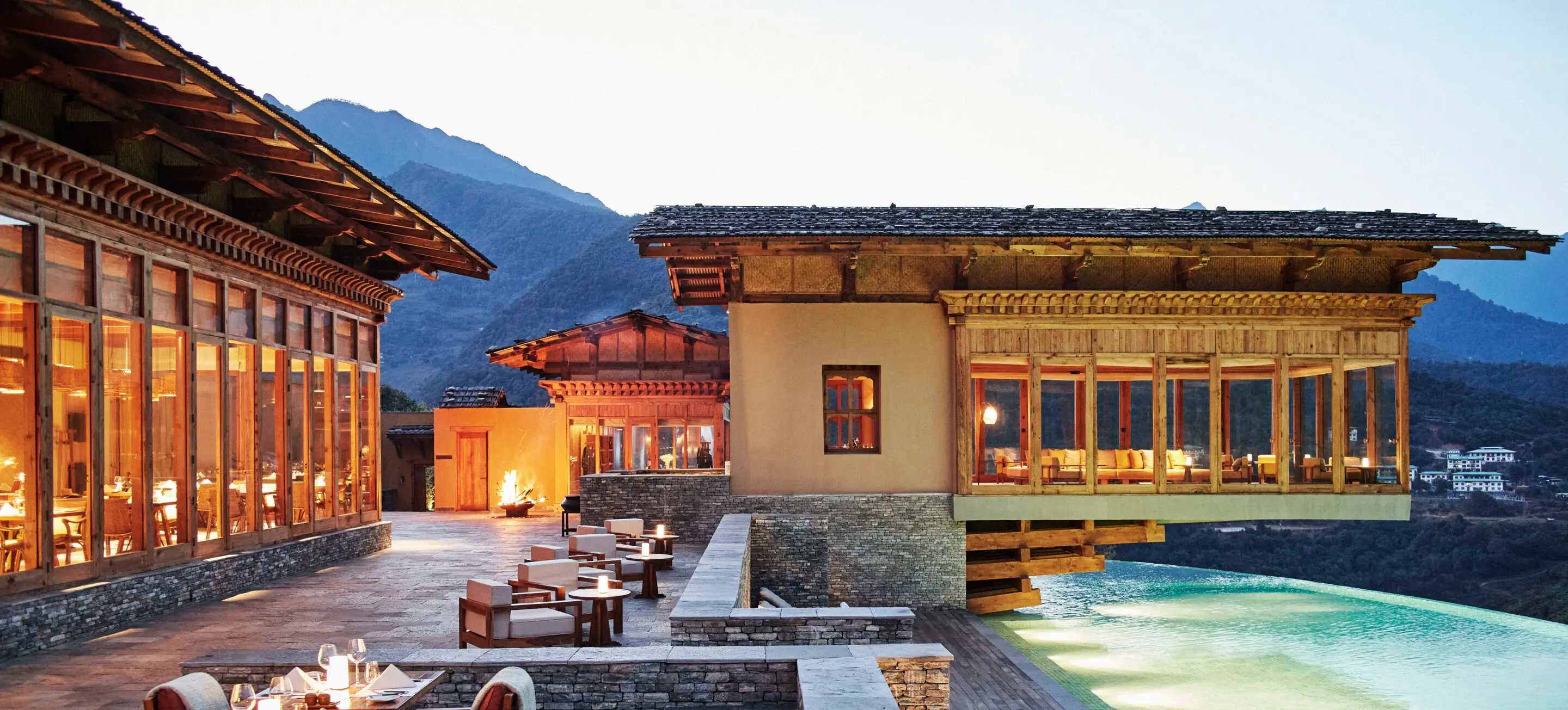
Hotels in Bhutan
Continue Reading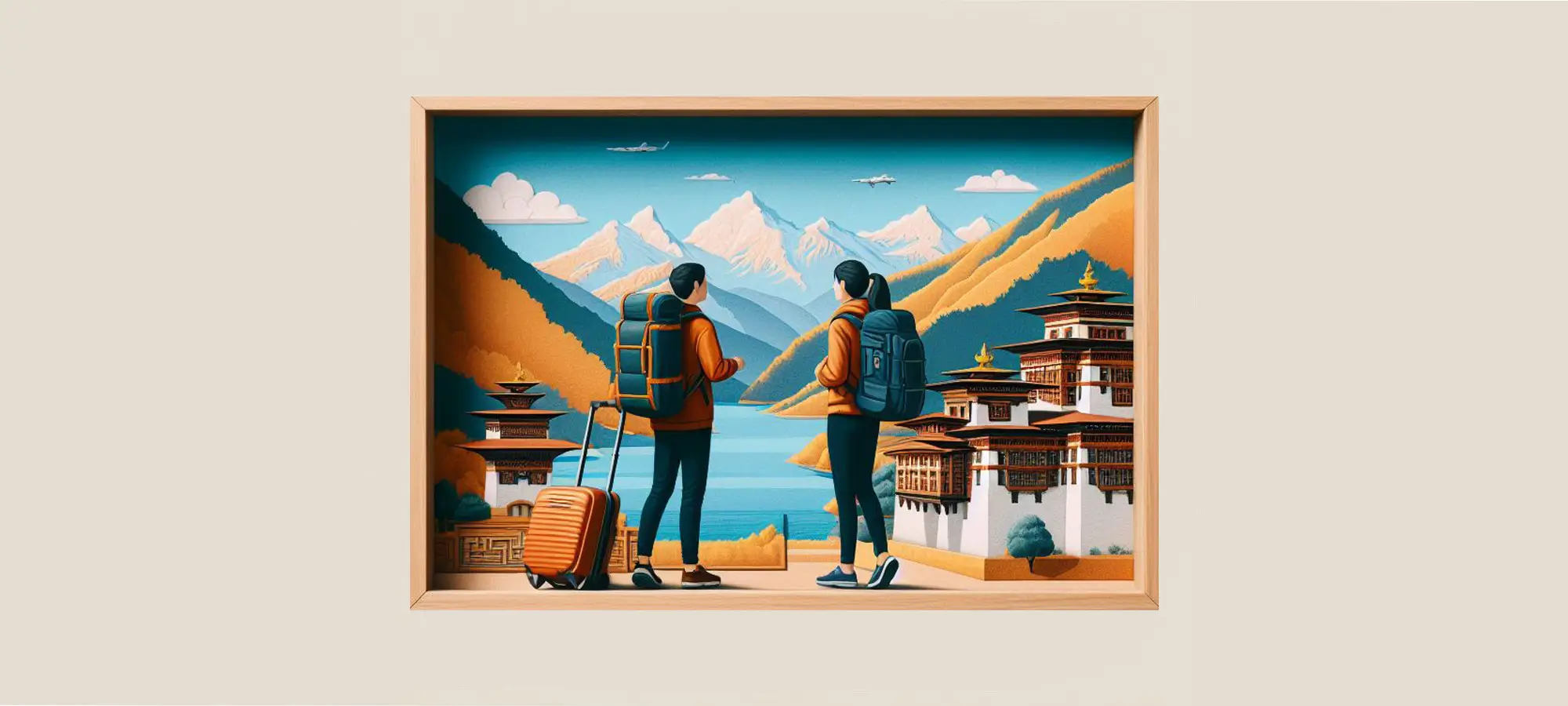
How to Pack for your Bhutan Trip
Continue Reading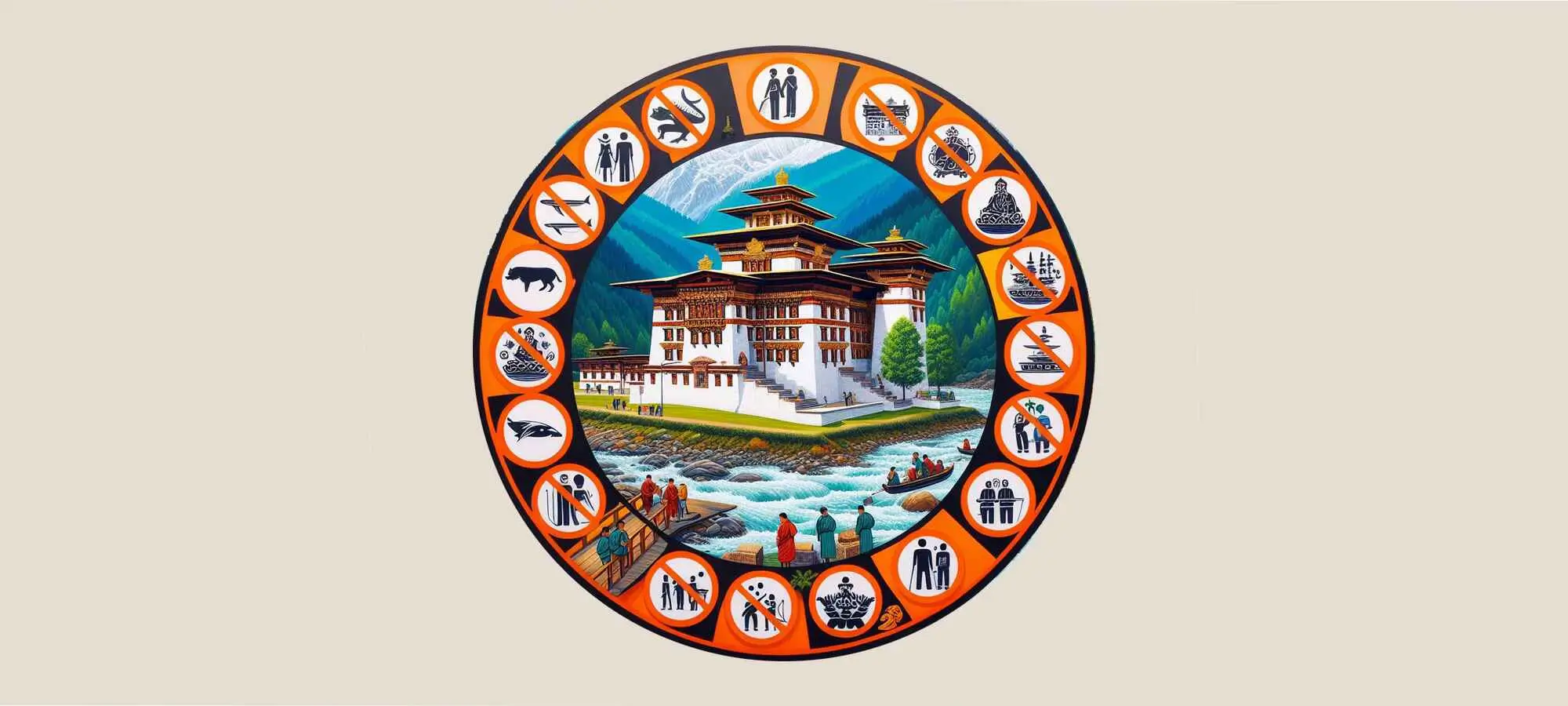
Bhutan Etiquettes
Continue Reading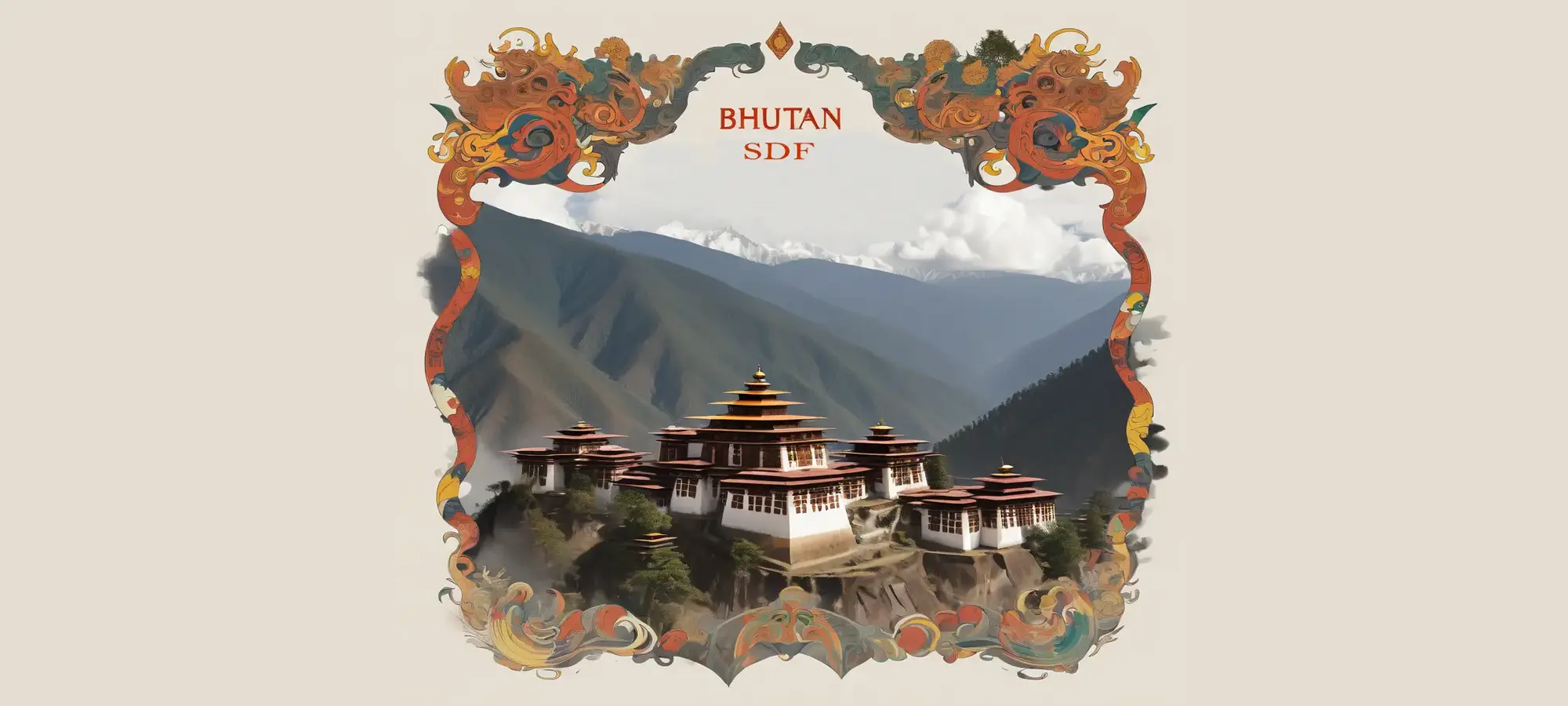
How to pay your Bhutan SDF Online
Continue Reading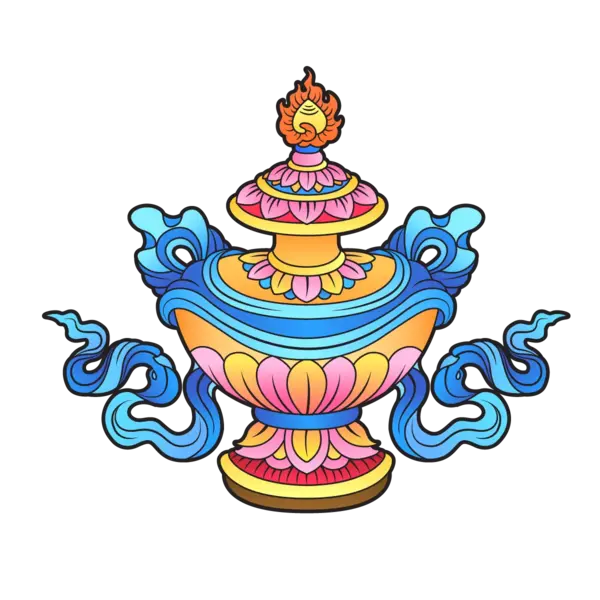
Traveler Favourites
Explore our BEST SELLERS
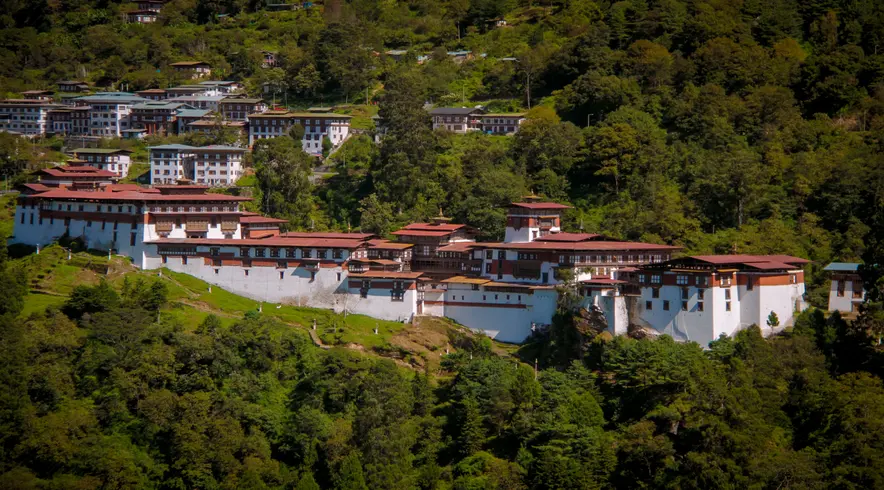
Cultural Escape to Bhutan
Experience the vibrant culture and heritage of Bhutan with our "Bhutan's Best Cultural Extravaganza".
- ✓ Tiger's Nest Monastery
- ✓ Experience local culture
- ✓ Spiritual Heartland of Bhutan
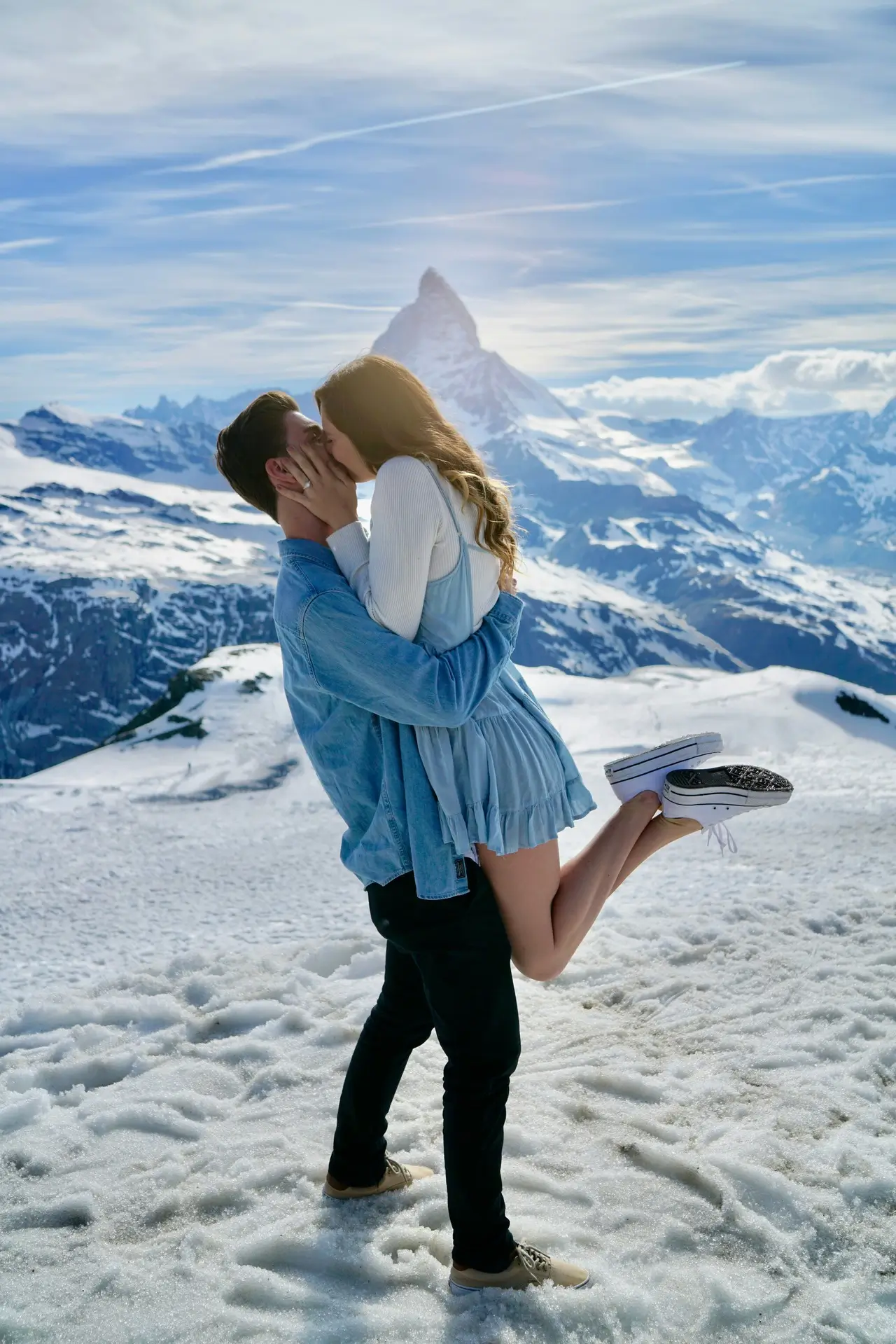
Bhutan Honeymoon Adventure
Bhutan Honeymoon Adventure isn't just a vacation, it's the beginning of a lifetime of love and adventures together.
- ✓ Personalized experiences and activities
- ✓ Personal Photographer Guide
- ✓ Special Honeymoon Surprises along the way
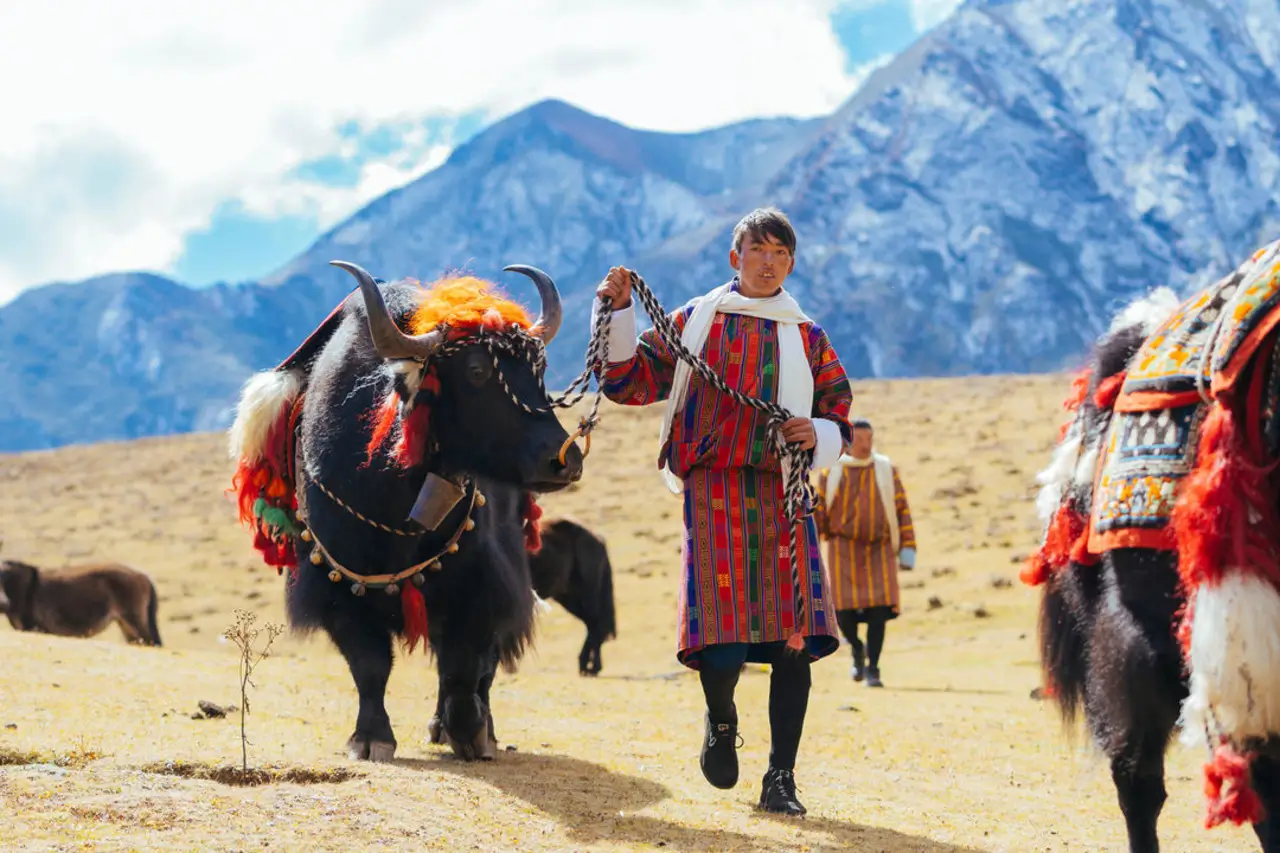
The Royal Highland Festival
The Royal Highland Festival is a gateway to discovering Bhutan’s majestic highlands and experiencing its vibrant traditions together.
- ✓ The Royal Highland Festival
- ✓ Gasa Tshachu (Gasa Natural Hotspring Bath)
- ✓ Opportunity to meet the King of Bhutan
Customize Your Bhutan Tour Today
Welcome to Found Bhutan Tours and Treks, your gateway to exploring the enchanting beauty and cultural richness of Bhutan. Let us craft a bespoke journey tailored to your interests, ensuring an unforgettable experience amidst the breathtaking landscapes and timeless traditions of this Himalayan kingdom.
"Reach out today to design your tailor-made journey and begin your adventure of a lifetime."

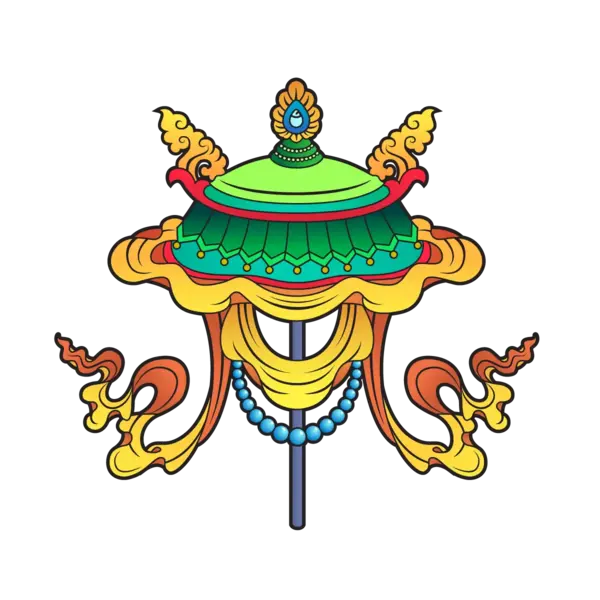
Visual Stories
Gallery of our most RECENT TOURS

